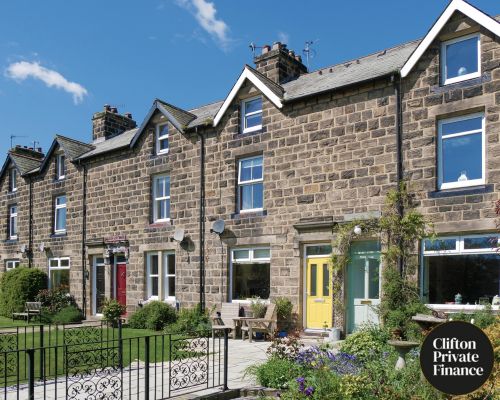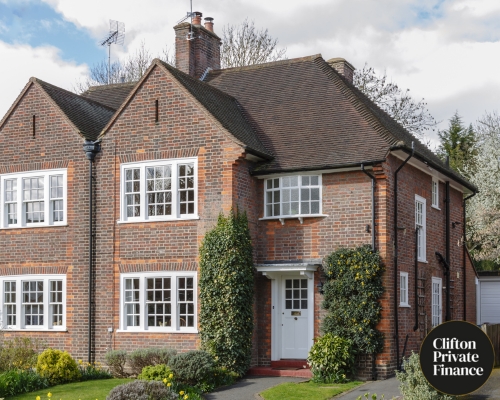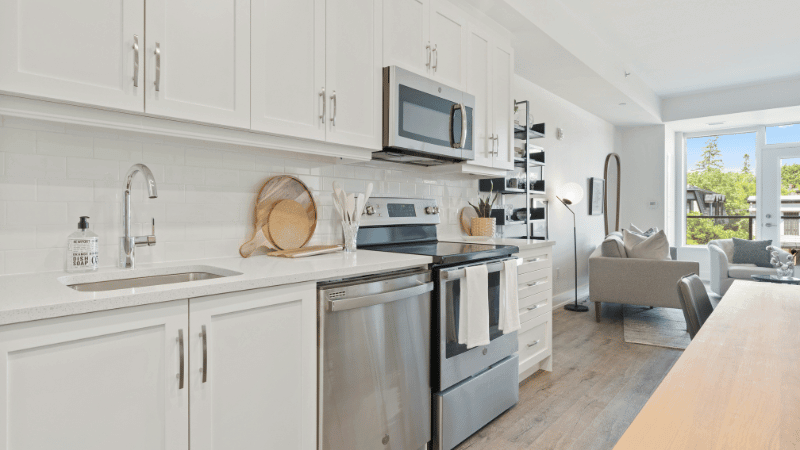Categories
What mortgage protection do I need?

When we sign on the line for a new mortgage, taking out a mortgage protection policy isn’t usually the first thing we think of buying. But there are plenty of of good reasons why it ought to be.
Buying a sofa for the new sitting room is a more exciting purchase to consider. But the price tag of plush-cushioned corner unit will pay for more than three years’ of mortgage protection premiums. Insurance for peace of mind may be the kind of comfort you really want to be looking for if you're aware that:
- 200,000 people in the UK are diagnosed with heart failure every year
- One in two Britons will be diagnosed with cancer at some point in their life
Mortgage insurance only turns out to have been "worth it" if the worst situation arises: an accident, a serious illness or losing your life, and these are difficult scenarios to consider.
It would be easier if we thought about mortgage protection in the same way as we do house-insurance: as a must-have to protect our most valuable assets.
Video clip: Avril’s successful claim on a family and personal Income policy

What is mortgage protection?
It's a type of insurance designed to help you or your family if things go wrong and you're unable to pay your mortgage payments.
Term life cover is a basic form of life cover that lets you leave a lump sum to your family to pay off your mortgage (or other expenses) if you die during the agreed period. Most policies run for 10 or 25 years – during that time you may have substantially reduced your mortgage, or paid it off completely.
Whole of life cover pays out when you die, whenever that may be (not limited to a term you decided on at the outset). It could be used to pay off your mortgage, or inheritance tax liability, funeral costs or anything else.
Critical illness cover can be a standalone plan, or added to a life insurance policy. It pays out a lump sum when you (or a child) are diagnosed with one of a specified range of illnesses (see below for conditions relating to Covid-19). It can be used to pay off your mortgage, or for non-NHS treatment or other costs.
Income protection cover (also called permanent health insurance) pays out a regular income which will allow you to keep up with your mortgage payments if you’re unable to work due to an accident or illness.

Is mortgage protection necessary?
Life-altering events do happen.
- Every year in the UK a million workers find themselves unable to work because of injury or illness, according to the Association of British Insurers.
- Employer’s sick pay usually doesn’t last longer than six to 12 months.
- One insurer’s figures show that income protection claimants aged 20-29 were claiming against their policy after only two years (compared with after seven years for claimants aged 40-49).
New treatments mean that people are living longer with serious diseases, but no-one wants to have their treatment or recovery compromised, or to be distracted from looking for new work, by worrying about how they’re going to pay their bills.
What will I be covered for?
- Term life cover pays for death but not if you fall ill. You can also add on cover for critical illness.
- Critical illness insurance doesn’t pay out if you die.
- Critical illness policies vary in the range of specific illnesses they cover. Consider in advance what you’re most concerned about, or which illnesses you would expect to be covered, and check the policy details.
- Mental illness often isn’t covered.
- Critical illness insurance doesn’t usually pay out immediately on diagnosis – for example the early stages of common cancers. You need to be very ill or disabled before you can claim.
- Critical illness insurance pays out once, and then the policy is cancelled - you can’t claim again for another illness.
- Income protection insurance usually covers a wider range of illnesses and for a longer time off work, but it usually costs more.
- It continues until you return to paid work, or you retire.
- There’s usually a minimum delay of four weeks before an income protection policy starts paying out, and payments may not start for up to two years if you receive sick pay from your employer, or statutory sick pay for up to 28 weeks.
- Income protection insurance usually pays around 50-70% of your former earnings to allow for state benefits you’re eligible for, and the fact that this income is tax free.
Will you be covered for coronavirus? See below.

Do I need to get critical illness insurance as well as to protect my mortgage?
It’s a less-expensive way than income protection insurance to get protection against illness or disability, but you may not need it if it’s included in a life insurance policy you already have.
You should consider taking it out if:
- Your employee benefits offer only basic cover for sickness or disability
- You don’t have substantial savings to fall back on
- Your partner or family won’t be able to manage without your income if you’re ill or unable to work
Income protection insurance may give you the broader and longer-term cover that you’re looking for.
Can I get mortgage protection for a pre-existing health condition?
- Not every policy on offer will cover you for an illness that you or a family member has had before - good advice will really pay off here.
- Check which companies will cover your "pre-existing condition"
- It should be possible to get cover, but the premiums will probably be a bit more expensive.

Do I need to have a medical examination to get mortgage protection?
Not always. Insurers will usually decide who needs a medical on a case-by-case basis. Your insurer will cover the cost, but you’re less likely to need one if:
- You’re young (you’re a lower risk for insurers)
- You’re healthy: you don’t smoke, you don’t drink too much, you’re a healthy weight and you don’t have any pre-existing medical conditions
- Your family is healthy: certain illnesses running in the family may prompt a checkup.
Unless you’re looking for a "guaranteed acceptance" policy (which is expensive), you’ll certainly need to complete a medical questionnaire. And you need to be completely honest in your answers – you don’t want to find out later that your policy is invalidated because you didn’t disclose relevant information.

Why should I put a mortgage protection policy in a trust?
You may be setting up, or already have a mortgage protection policy to pay off the capital owing on a low-cost interest-only "endowment mortgage" when you die.
When the beneficiary of mortgage life cover is you as an individual, rather than your mortgage lender, the payout can be counted as part of your estate. It will be subject to inheritance tax (IHT), probate fees and solicitor’s fees when you die.
If your estate will be liable for IHT:
- It will take time for your family to receive the policy payout, and may put the property at risk of mortgage foreclosure.
- The value of the payout will be reduced by IHT and fees.
To protect the proceeds of insurance that is payable on death, and particularly for couples who are not married or in a civil partnership, policies can be written into a trust:
- Life insurance
- Mortgage protection
- Some critical illness policies
- But not income protection policies
Find out what kind of mortgage protection will suit you
A good mortgage broker understands that that this a complex issue for you to consider, and can get you the right advice that will help you make the best decision for your circumstances.
This isn’t a decision that you can only make when you take out a new mortgage. Recent life events may have made you more aware that you need a financial safety-net. You can take out mortgage protection at any time.
Just give us a call and we’ll get you started by finding out the right information:











